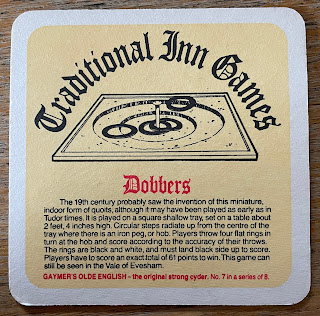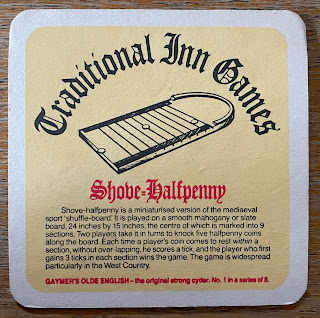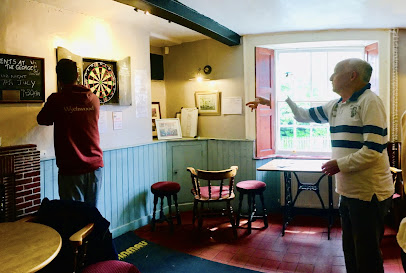 At the risk of employing a rather flimsy excuse as an introduction to this post, the game of Fives has been on my mind a little more than usual of late. My friend and fellow pub games enthusiast John Penny started it all off with a feature he wrote on the game earlier this year for Visitor Magazine. A much more in-depth and informative piece than I'll attempt here, and I urge you to follow the link and read it from page 20 for a better understanding of the game.
At the risk of employing a rather flimsy excuse as an introduction to this post, the game of Fives has been on my mind a little more than usual of late. My friend and fellow pub games enthusiast John Penny started it all off with a feature he wrote on the game earlier this year for Visitor Magazine. A much more in-depth and informative piece than I'll attempt here, and I urge you to follow the link and read it from page 20 for a better understanding of the game.
John is of course a Dorset man, as evidenced by his sometimes impenetrable Dorsetshire accent and a deep love of Dorset's national sport, Alley Skittles. John plies his skittling trade, with some success it must be said, at the famous Rose & Crown in Bradford Abbas, and more widely at away matches in Dorset and over the border in Somerset. So a rare pub gaming tradition almost unique to neighbouring Somerset was never going to escape Johns keen eye for long, even if it's now effectively an extinct tradition as far as the pub is concerned.
Fives as a competitive game dates back several centuries, and was widely played throughout the country and latterly exported to the then colonies. A form of Handball that requires nothing more complex to play than a solid wall, a ball with some measure of bounce, and tough or gloved hands. As far as Somerset is concerned, the game seems to have developed and become popular when played between the buttresses of a church tower (indeed surviving walls are still known as 'Towers'), which would probably have been the only suitable 'court' available to ordinary folk at the time. I don't know whether the example shown here on the north side of Carhampton Church is known to have been used for the game, but the basic form and a clearly delineated line a couple of feet up is typical, and would have certainly made it possible.The surviving Fives Towers in Somerset may no longer be in use, but they represent a great opportunity for tourists like myself to visit, often being handy for pubs and of course eminently 'collectable'. A cluster of surviving Towers near Yeovil would make for an easy tour, but I visited an outlier at the Lethbridge Arms in the village of Bishops Lydeard to the north of Taunton. Bishops Lydeard is perhaps more famous these days as the eastern terminus of the West Somerset Heritage Railway, making a visit to the Lethbridge even easier for tourists in the Minehead area.
The impressive Fives Tower at the Lethbridge Arms stands as a boundary between the pub car park and an adjacent cottage. Built of stone with a more 'even' red brick facing, the tall self-supported structure is strengthened by sturdy buttresses to the side (right) and rear (below). It's clear that the game would have been played and spectated from the rear of the pub itself. Albeit that it now abuts the pubs busy car park, the Fives Tower at the Lethbridge could quite easily be used for a game even now should anyone fancy a revival.


















































